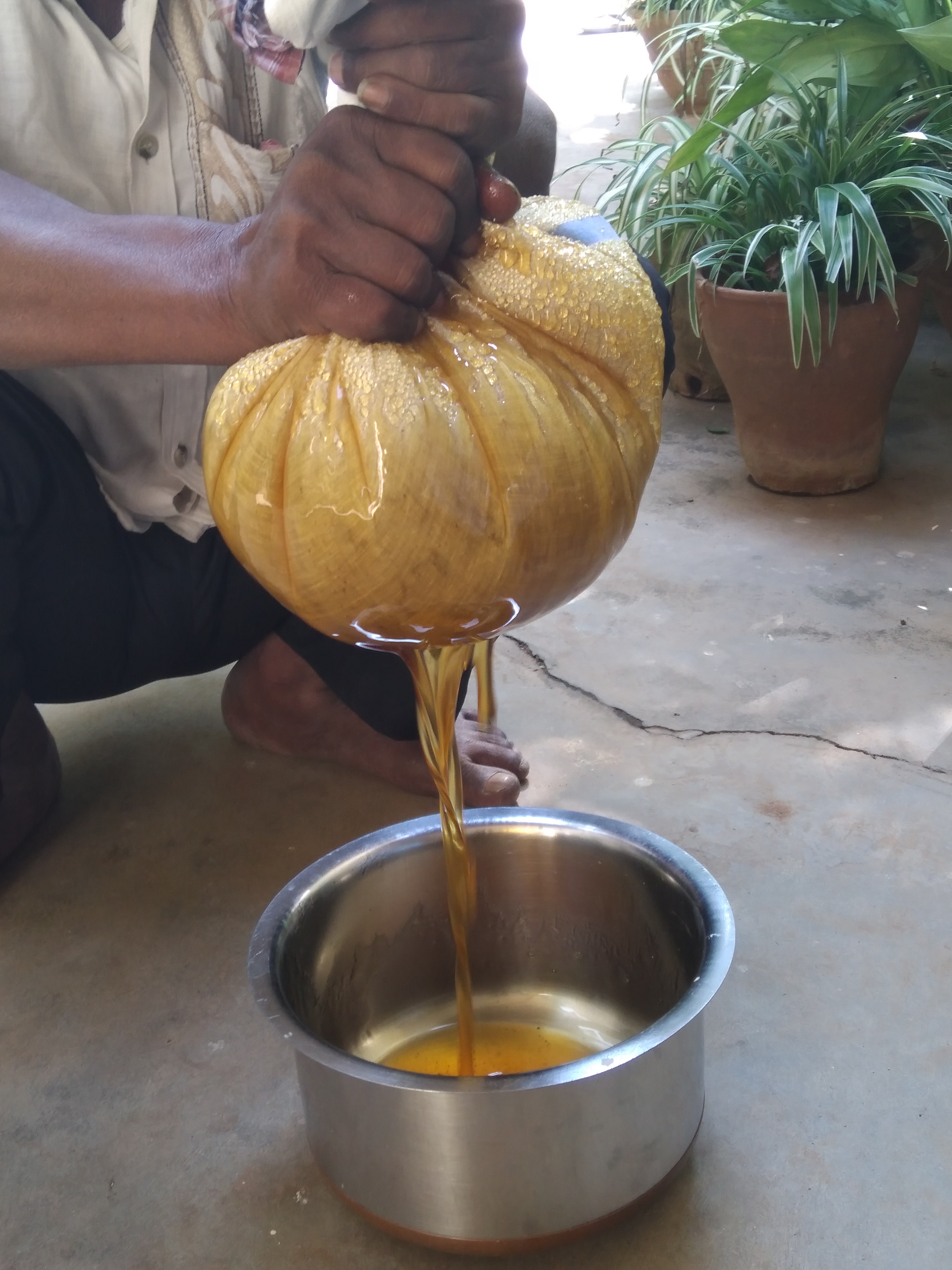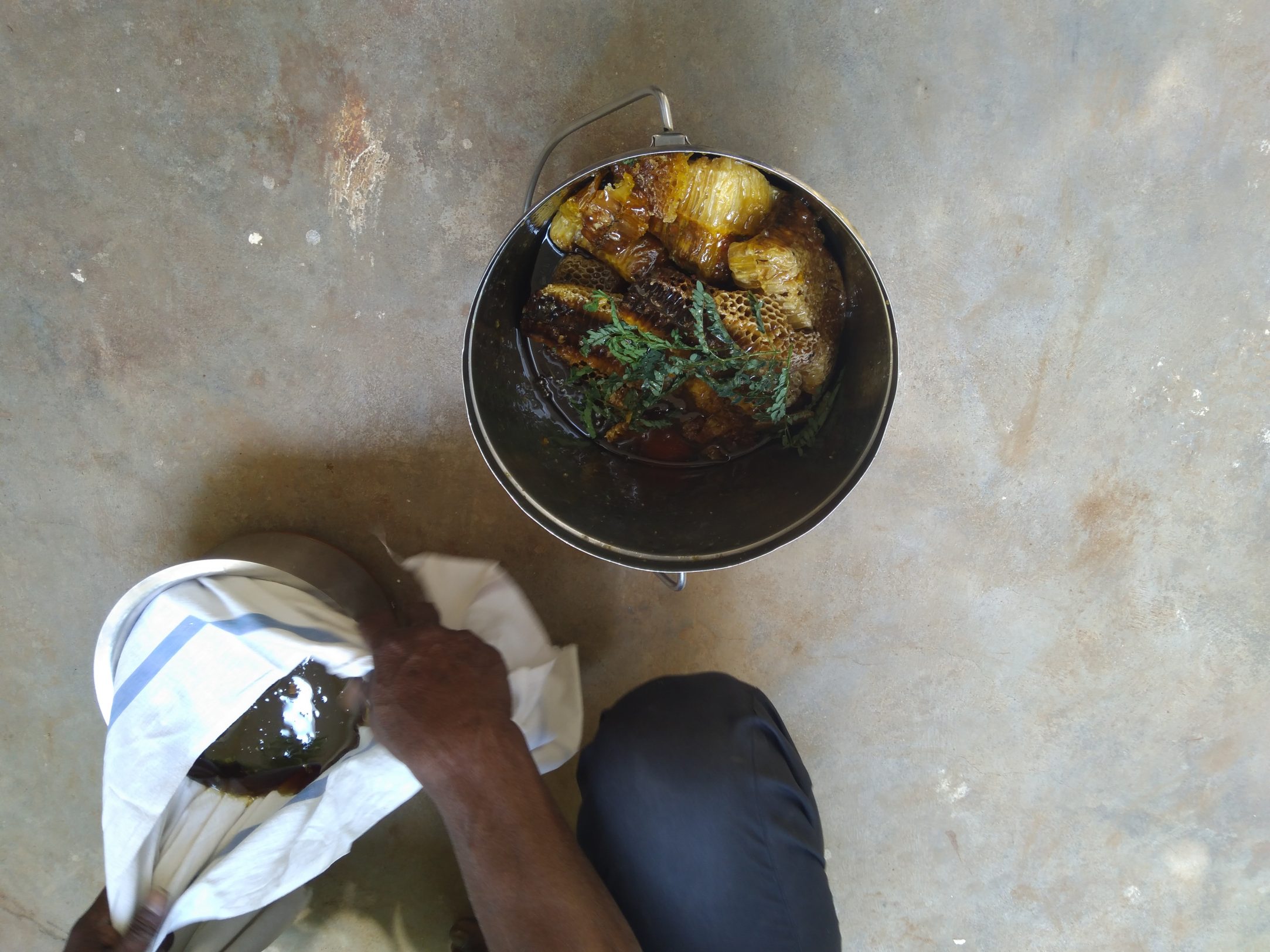Hyderabad
December 13, 2017
At home, it’s my job to water the garden. My mother’s family mostly disapproves of her love for flowering plants. “Such a waste of space,” they say. “You could have more banana plants. Maybe pumpkins? Gourds?” But no; she prefers colour, goes everywhere with a handy pair of garden scissors, and has no compunction in pinching creepers and cuttings from anywhere at all to add to her chaotic and very colourful garden.
The garden, which I water: Summer or winter, I do it in the mornings, when it’s cool and just before the sun clears the tops of neighbouring buildings. It’s a ritual with its own forms: remove the stones weighing the sacks down over the pipe (to protect it from the sun). I drag out the pipe first while carefully working out all the twists and kinks that have gathered with age; open the tap just so, just enough so that there’s adequate pressure, while not wasting too much water.
Like rituals should, this soothes my slowly waking mind.
I have a particular pattern of moving around the garden that is very different from my mother’s. This is why she stays indoors when it’s my turn: to avoid telling me the best way of doing things. I begin at the gate, adjusting pressure depending on whether it’s a plant or tree, in flower or not; newly-planted and fragile, or well settled into the ground. Where the leaves are broad or with a canopy, I spray water to wash off the dust, and soon there are birds hopping and catching the diamond drops of water.
Today there are quantities of hibiscus flowers. Yellow ones, large as plates; small, perfectly shaped white flowers with deep pink centres; the plain red ones they use for pujas during Navaratri. The white poinsettia we call snow on the mountain is also in full bloom.
Flowers, bloom, blossom.
Why do cherry and lemon trees have blossoms, but hibiscus and bougainvillea have mere flowers? It can’t be a matter of delicacy, because the thick-stemmed, robust lotus also blossoms while the jasmine only flowers.
Off to the west side where my pipe doesn’t reach, our lemon tree has been so laden with flowers that bees have been dizzily flying up to our windows and smashing against them, sometimes finding their way into the rooms through the air conditioning vents. Nectar thieves, these bees. They keep a percentage for themselves before staggering to the hive and adding to the commonwealth.
There is a hive in the silver oak tree. In all these weeks, I didn’t know about it because though I look up often, it hasn’t been easy to spot; this thing, black with the busyness of bees, blends into the green-grey of the leaves. Once I’d seen it, though, it was hard to miss. It was huge, pendulous and just a little bit alien, even if in a fundamentally organic way. Thankfully, it was more than a hundred feet up from the ground.
Just a few months before, my mother and I, rattled by the vicious strength of the summer storms—and by the silver oak’s proximity to the house and the overhead electricity cables—had considered having it cut down. Daunted not only by the scale of the operation and how much it would cost, but also by permissions and the inevitable bribes necessary to get them, we postponed the project indefinitely.
A few hours after I’d done watering the garden, my mother rushed into my room, demanding I stop everything and come out with her. “Look up!” she said, and I did. The hive, dark with swarming as it had been, was now pale gold and still. It was ripe. And so very far away.
“Look down here,” my mother now instructed me, and I looked obediently. At first, I couldn’t see what she was pointing to, but then I found them: a couple of bees still twitching on the ground. Every day, it seemed, a few bees dropped dead, their work done.
In the afternoon, a man called out from the gate. It took us some time to understand that he was a bee-keeper, a harvester, offering to take down the hive he’d spotted, and get us the honey. “You can try,” we said, a little smug. We knew the impossibility of getting into the silver oak branches.
One look at the tree from its base and he shook his head in defeat. But since he was here, and since he planned to harvest a hive in the area, he offered us some honey. In an hour, he returned, with a bucket laden with honeycomb and broken leaves. After we provided him with basins and towels and weights and measures and glass bottles, he provided us the honey. Kilos and kilos of it.
Golden, sticky honey that ran faster than we could catch it, that overflowed even the deepest, largest basin we could find. It was like murder: I had the evidence in my hair, between my toes and all over my clothes. The honeycomb sat emptied in the bucket.
It must have been possible to extract beeswax, but we didn’t know how. Was it enough to filter the honey? Would it ferment? (Would we be left with mead?) How best to store it so it didn’t spoil? We knew not to refrigerate the honey, but that was a small thing to know, and it was outweighed by all the things we didn’t.
Later, looking up at the silent, golden hive, I wondered where all the bees had gone. Had they all—every one of them—died? What would happen to the honey they had worked to make, that we couldn’t reach? Surely there was a queen? And a new lot that had to be fed? Were they feeding on that honey? Where were they growing? How many of those spaces for the next generation of bees and how many for the store of honey? Which part of the hive was wax? What did the queen do without her workers? Would the hive stay intact or would it crumble to the ground?
For some reason, I am thinking of T.H. White now, of the colony of ants in The Once and Future King. But ants aren’t bees and I will understand nothing about this hive on the silver oak by reading about ants. I am also thinking of Terry Pratchett for some reason. The Wee Free Men? Something to do with Tiffany Aching, but that also is irrelevant. I put my books away and will shortly shut down my laptop for the day.
In this matter of bees and nectar and honey and lemon flowers, I need to gather my knowledge, like the bees gathered nectar, slowly, over months, perhaps dizzied by what I observe.
For instance: the lemon trees flowered, and then there were lemons—an abundance of them. I scratched myself innumerable times trying to get at the ones on the tallest branches. Now, today, I see the tree has shed almost all its leaves; there are no flowers and very few lemons left. It feels dormant, just like the hive, whose business is also done. What honey there is, is being reabsorbed, transforming into the next cycle.
Elsewhere in the garden, other things continue to flower: bougainvillea, impatiens, what we call December flowers, electric purple or white. But they have no nectar. And after all this is winter. The trees shed here, as they’re supposed to do, and the sun warms the mornings and the afternoons, though the night falls sharply. I recognise, from my own need to nap often, the season’s pull at what must be the cellular level, plant or animal.
But I still plan to keep a beady eye on the hive for signs of life. The lemon tree can announce itself in the usual manner.







